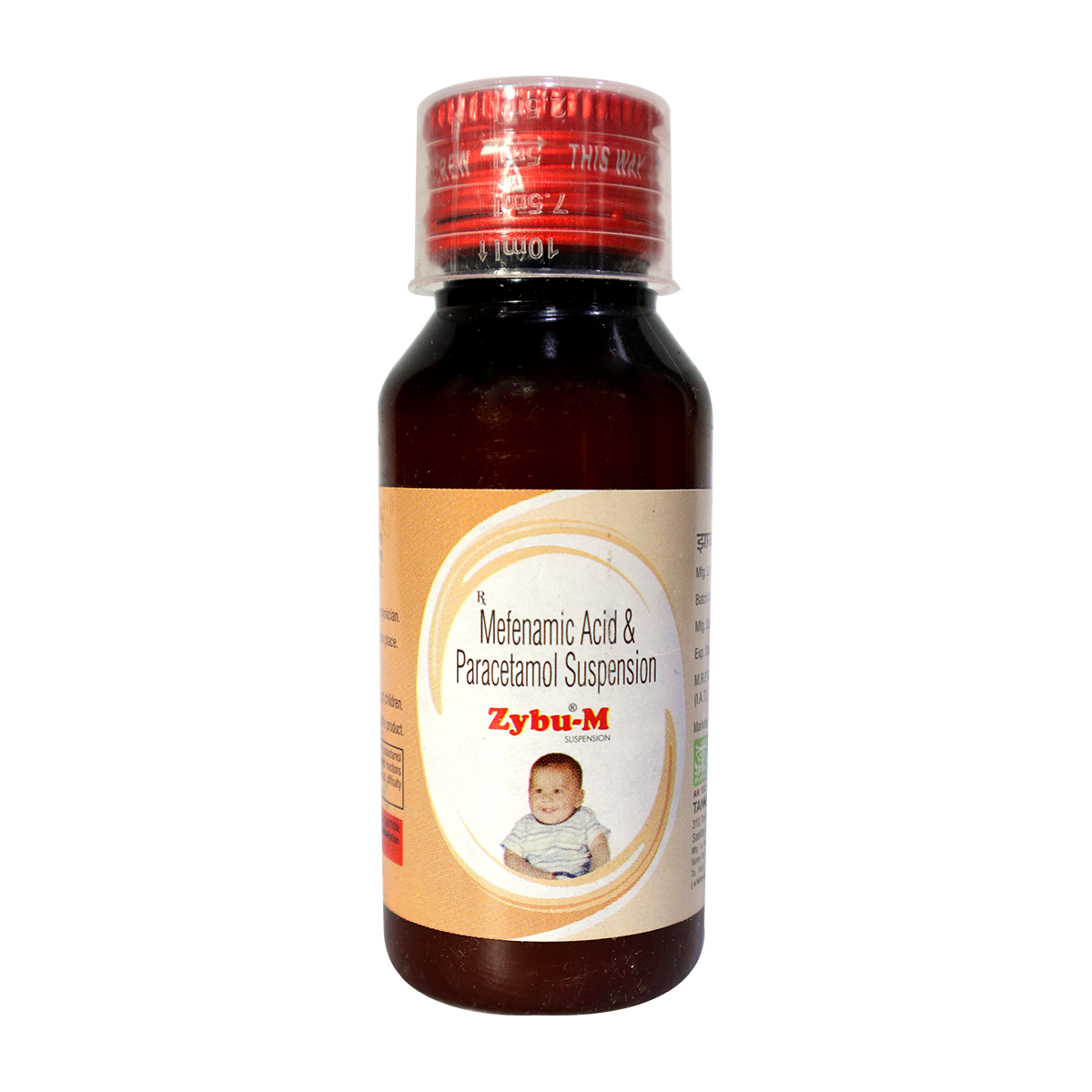
Zybu-M
This is a combination liquid formulation of Mefenamic Acid (50 mg) and Paracetamol (125 mg) per 5 ml. It is used to relieve pain and fever, offering an effective solution for conditions where both an analgesic and anti-inflammatory action are needed.
- Mefenamic Acid is a nonsteroidal anti-inflammatory drug (NSAID) that helps reduce inflammation, pain, and fever by inhibiting the enzymes COX-1 and COX-2 which are involved in the production of prostaglandins (chemicals responsible for pain and inflammation).
- Paracetamol (also known as Acetaminophen) is an analgesic and antipyretic that helps reduce pain and lower fever. It works by inhibiting prostaglandins in the brain.
This suspension form is typically used when a liquid form of medication is necessary, such as in pediatric care or for individuals who have difficulty swallowing tablets.
- Recommended Usage
Indications
This combination suspension is used for the following conditions:
Pain relief associated with:
Headaches, toothaches, muscle pain, back pain, joint pain.
Post-surgical pain or pain from injury (e.g., sprains, strains).
Dysmenorrhea (painful menstruation).
Fever reduction: For managing fever in conditions like colds, flu, and infections.
Inflammation-related pain: Due to the presence of Mefenamic Acid, it is effective for treating pain with an inflammatory component, such as arthritis or inflammatory musculoskeletal conditions.
Dosage and Administration
Adult Dosage:
The usual dose for adults is 10-20 ml (containing 100 mg to 200 mg of Paracetamol and 20 mg to 40 mg of Mefenamic Acid) every 6-8 hours as needed.
Do not exceed 4 doses per day (or 3000 mg of Paracetamol and 200 mg of Mefenamic Acid).
Pediatric Dosage: : The dosage in children depends on their age and weight. A general guideline is as follows:
Children 6-12 years: 5-10 ml (containing 62.5 mg to 125 mg of Paracetamol and 25 mg to 50 mg of Mefenamic Acid) every 6-8 hours as needed.
Children 2-6 years: Typically 2.5-5 ml (containing 31.25 mg to 62.5 mg of Paracetamol and 12.5 mg to 25 mg of Mefenamic Acid) every 6-8 hours as needed.
Children under 2 years Should be used under a doctor’s supervision, and the dosage should be determined based on weight and age.
Administration Instructions:
Shake the bottle well before use to ensure even suspension.
Use a measuring spoon, syringe, or measuring cup to ensure accurate dosing.
It is advisable to take the medication with food to reduce potential gastrointestinal irritation, especially with Mefenamic Acid.
Precautions
Gastrointestinal Issues: Mefenamic Acid, like all NSAIDs, can irritate the stomach lining, leading to conditions such as ulcers or bleeding. Use with caution in individuals with a history of stomach ulcers or gastrointestinal bleeding.
Liver and Kidney Disease: Paracetamol is metabolized in the liver, and Mefenamic Acid is processed in the liver and kidneys. Use with caution in people with liver or kidney problems.
Cardiovascular Risk: NSAIDs, including Mefenamic Acid, may increase the risk of heart attack and stroke, particularly with long-term use. This risk may be higher in individuals with existing heart disease or high blood pressure.
Pregnancy and Breastfeeding:
Allergic Reactions: Some individuals may experience allergic reactions, including rashes, swelling, or difficulty breathing. If any of these occur, discontinue use immediately and seek medical attention.
Alcohol Use: Excessive alcohol consumption can increase the risk of liver damage when using Paracetamol. Mefenamic Acid can also increase the risk of gastrointestinal bleeding in those who consume alcohol frequently.
